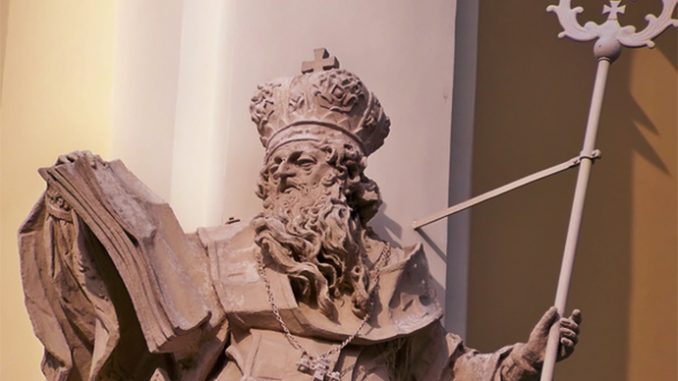Athanasius Contra Mundum: A Saint for a Time of Confusion, by Peter M.J. Stravinskas

Archdiocese of Baltimore Concludes Traumatic ‘Listening Sessions’ Around Restructuring Plan
May 3, 2024
America’s Catholic Church Sees an Immense Shift Towards Tradition, by Tim Sullivan
May 3, 2024
A statue of Saint Athanasius (c. 1760), by Johann Georg Pinzel, in Lviv, Ukraine. (Image: WikiArt.org)
By Peter M.J. Stravinskas, Catholic World Report, May 2, 2024
Reverend Peter M.J. Stravinskas founded The Catholic Answer in 1987 and The Catholic Response in 2004, as well as the Priestly Society of Blessed John Henry Cardinal Newman, a clerical association of the faithful, committed to Catholic education, liturgical renewal and the new evangelization. Father Stravinskas is also the President of the Catholic Education Foundation, an organization, which serves as a resource for heightening the Catholic identity of Catholic schools.




